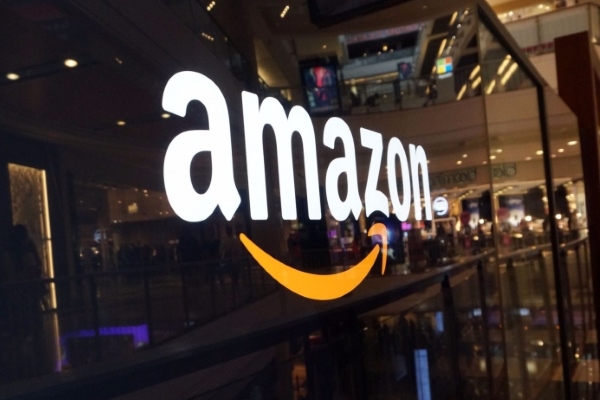
Amazon’s warning to buyers of nutritional supplements that what they purchased could be fake is another shot across the bows of the online retailer on the counterfeit issue.
The warning letter – obtained by Wired magazine – was sent to customers who purchased what they thought were Align probiotic supplements manufactured by Procter & Gamble, but are suspected to be falsified copies.
The suspect supplements were sold by a third-party seller on Amazon Marketplace, which is viewed as a particularly weak area for Amazon as it tries to drive counterfeits off its platforms, and that’s worrying as third-party sales are accounting for an increasing proportion of total transactions.
P&G has confirmed that some of the Align products sold on Amazon were fake, and the online retailer has recommended that customers who bought the suspect items should throw them away. It also says it has taken action against the sellers and refunded customers who were caught out.
The online retail giant – along with other US outlets – isn’t keeping pace with Chinese counterpart Alibaba on counterfeits, at least in the eyes of one US lawmaker who attended a hearing earlier this month on the issue.
At the July 18 hearing – part of a proposed crackdown on online counterfeit sales by President Trump – Representative Doug Collins, ranking member of the House Judiciary Committee, said that “Alibaba’s anticounterfeiting policies and programmes are significantly more effective than any of their US counterparts.”
Alibaba has worked hard to shake its reputation as the go-to outlet for counterfeit goods after being the poster-child for the illicit trade just a few years ago, and according to Collins is now “working very closely with all complaining brand owners and are using cutting-edge technology to scan for and detect counterfeits.”
He added: “I find it shocking US platforms are so far behind.”
Last year the American Apparel & Footwear Association (AAFA) called for some of Amazon’s marketplaces to be included in the next edition of the US Trade Representative’s Special 301 Notorious Markets list because of the problem of counterfeit product listings.
Transparency is also lacking. Amazon is coy about the brands enrolled into its IP protection programmes, and doesn’t provide a lot of data on how effective its technological approaches are at stripping out fraudulent listings.
Amazon isn't alone in this of course - and while some of that may be due to brands being unwilling to admit publicly they have a problem with fakes, that's a position that is untenable when consumers are being defrauded. It is past time for companies to acknowledge this is a near-ubiquitous issue that needs to be tackled squarely in the open.
Alibaba meanwhile trumpets its takedown rates, saying for example it removed 96 per cent of fake listings before a single sale took place last year, and also reaches out to the brands that join its Alibaba Anti-Counterfeiting Association (AACA) with regular networking meetings to encourage collaboration on anti-counterfeit.
Amazon – which officially acknowledged its counterfeit problem for the first time this year – nevertheless insists it is rolling out a raft of measures to tackle counterfeit sales.
That includes its Brand Registry programme – a platform for registering logos and trademarks to facilitate detection of infringement – which was set up in 2017.
It’s also introduced Transparency serialised codes for some brands that can be checked at fulfilment in its warehouses, extending its use outside the US for the first time this year, as well as an anti-counterfeit toolbox – called Project Zero – aimed at using artificial intelligence and machine learning to seek out and delete suspected counterfeit listings. That is still invite-only however, suggesting it is still in the early stages of roll-out.
In the meantime, consumers are still being duped by counterfeits on its platforms, and some brands affected by illegal sales are uncomfortable that Amazon absolves itself from any responsibility for the action of third parties when it takes a cut from sales.
The liability issue has been playing out in the courts, with the online retailer successfully defending its position at every turn – until this month when a federal appeals court bucked that trend by ruling it can be held liable for defective or counterfeit products sold on its sites.
The court said Amazon’s business model “enables third-party vendors to conceal themselves from the customer, leaving customers injured by defective products with no direct recourse to the third-party vendor.”
Amazon earned about $11bn in revenue from services it provided to third-party sellers for the quarter ended in March, and it is estimated that around half of the items sold on Amazon are from third-parties. There are signs that it will be taken to task over counterfeiting - either by political action or in the courts - if it doesn't accelerate its efforts to set its house in order.
©
SecuringIndustry.com





